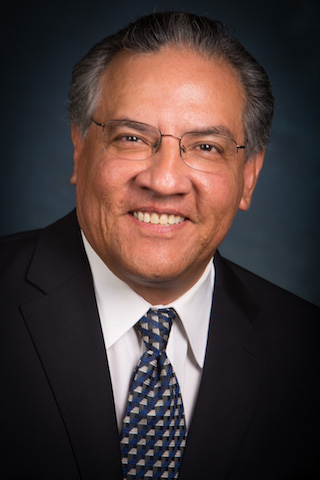
Photo of Dr. Samuel Figueroa.
Samuel Figueroa, M.D., who is an internal medicine doctor at Golden Apple Medicine and is on the medical staff at St. Luke’s Medical Center, specializes in the treatment of sun-damaged skin. Dr. Figueroa spoke with AZFoothills.com and advised how imperative it is to not put our guards down to sun safety throughout the winter months.
“Living in Arizona, it’s easy to let your guard down once we’re out of the scorching summer weather. We equate the summer sun’s intensity and heat with skin damage, but it’s really the ultraviolet rays that are doing harm,” says Dr. Figueroa. “Temperature has nothing to do with harmful UV rays that damage skin – just ask anyone who has gotten a serious sunburn while skiing or snowboarding. The truth is that although the weather may be cooler or we may see more clouds in the sky, harmful ultraviolet rays are still getting through and wreaking havoc on our skin.”
Dr. Figueroa also offered some additional sun-safety tips to hold onto as we head into the holiday season:
- Sunscreen. It’s the first line of defense against the sun’s most dangerous rays.
- Cover up. Wear protective clothing, including longer sleeves and pants, to shield your skin.
- Protect your eyes. Invest in quality sunglasses that offer UV protection. Just like your skin, your eyes are exposed to those harmful rays.
- Say “no” to tanning beds. It’s tempting to want to maintain that summer glow as you’re heading out to holiday parties, but tanning beds expose you to intense UV radiation, which increases your risk of skin cancer.
It’s also important to note that everyone’s skin is unique and will require more or less attention based off of a person’s age, lifestyle, complexion and skin-care history.
“It’s never too late to get started and it shouldn’t be a burden to start a healthy skin care regimen,” said Dr. Figueroa.
For more information on personal skin care and health, be sure to consult with a dermatologist.
